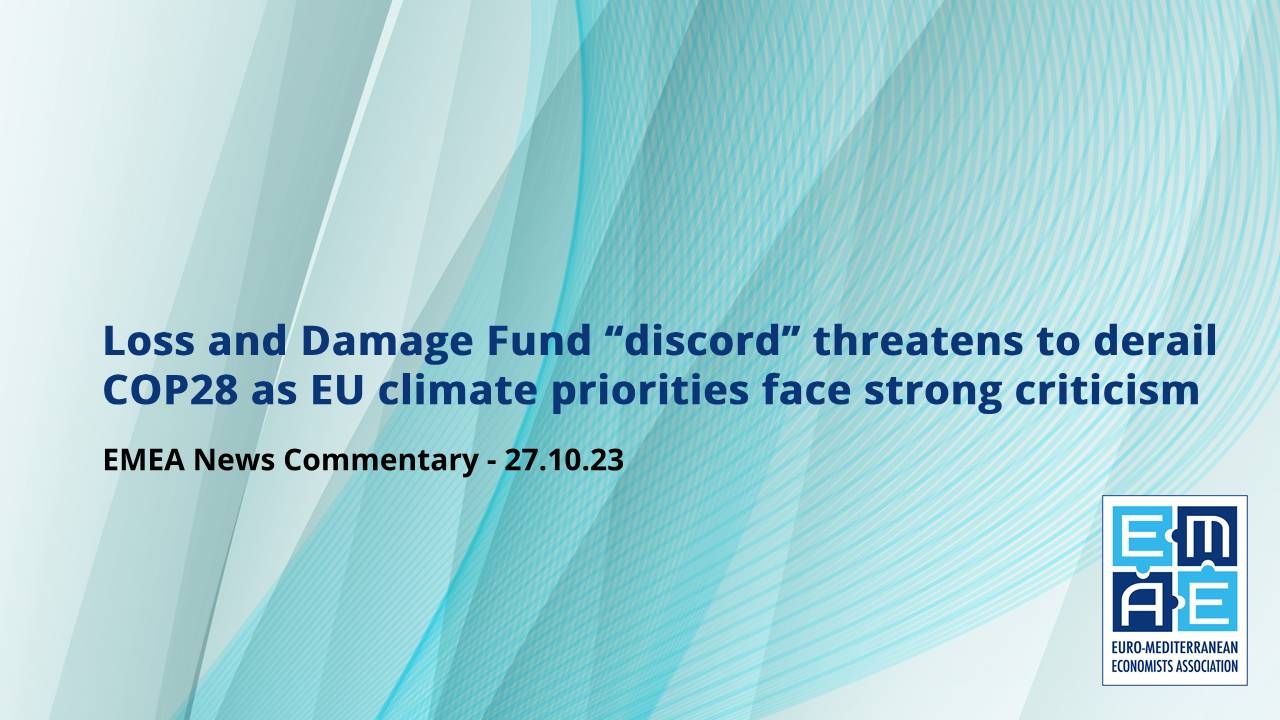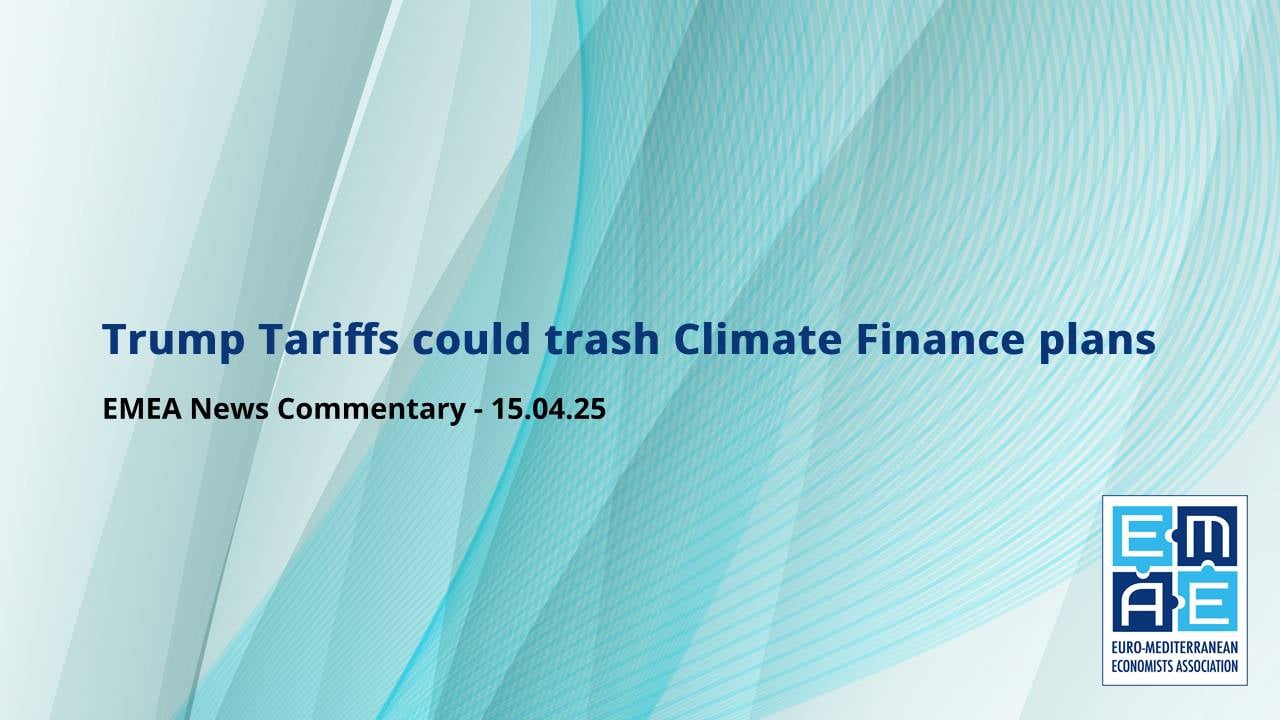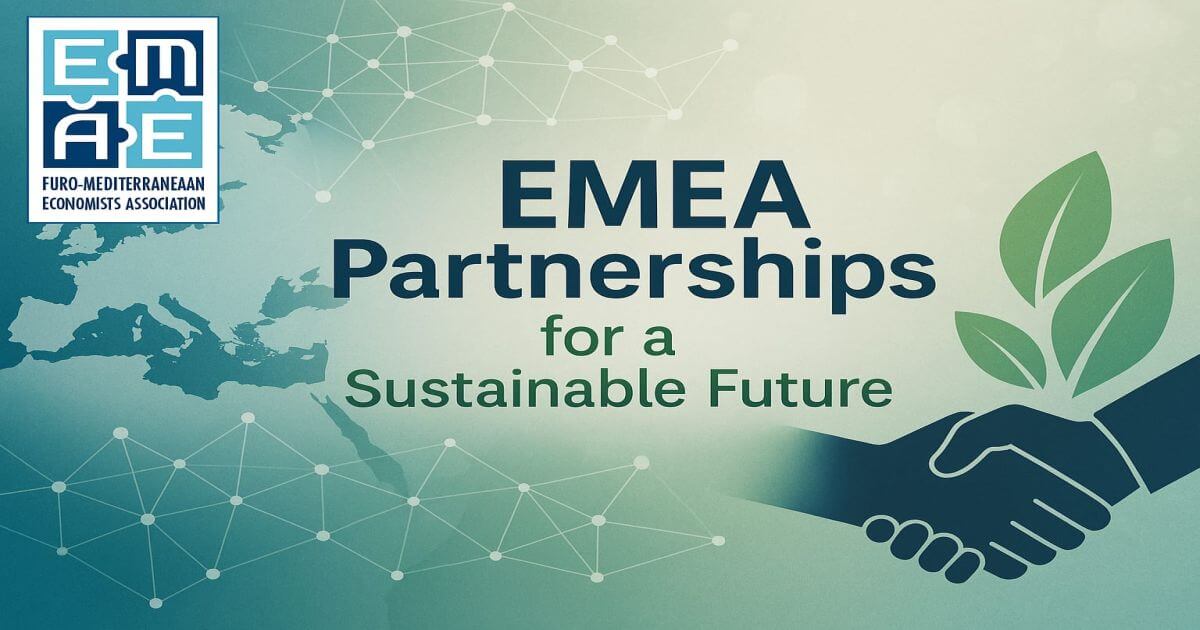Next month’s COP28 summit already looks to be running into trouble after the latest round of climate funding talks between rich and developing countries “fell into disarray”, according to a Financial Times report.
Disagreement continues over the so-called Loss and Damage Fund, a flagship announcement at COP27, which was designed to help countries devastated by global warming. At the time, it was hailed by leaders of developing nations as a way of providing aid to “particularly vulnerable” nations.
But now, after a year of what’s been described as “fraught negotiations”, a fourth round of talks in recent days has collapsed. This has set “the course for a difficult UN COP28 climate summit next month in Dubai,” wrote the FT.
After three days of negotiations by a 24-strong committee in Aswan, Egypt, there was “discord over who should fund it, where it should be based and who would be eligible for support.”
After the talks were disbanded, Preety Bhandari, senior adviser in the global climate programme and the finance centre at the World Resources Institute said: “Whether or not the loss and damage fund becomes fully operational is a key measure of success for the COP28 summit.”
Sultan al-Jaber, president-designate of COP28, had urged the negotiators to find a consensus. But with nothing forthcoming, COP28 have said they will now host a further round of talks in Abu Dhabi early next month.
Ms. Bhandari warned that the COP28 Summit, which starts at the end of November in Dubai, was “destined for very rocky negotiations” if the Abu Dhabi session couldn’t find common ground on the Global Loss and Damage Fund.
“The entire COP28 negotiations could get derailed if developing countries’ priorities on funding for loss and damage are not adequately addressed,” said Ms Bhandari.
Jaber said that finding agreement on the fund was “essential” because “billions of people, lives and livelihoods who are vulnerable to the effects of climate change, depend upon the successful delivery.”
At the meeting, the G77 group of developing economies, plus China, had opposed the idea of the World Bank running the fund but were appeased by the idea of the Bank taking on a leading role, according to stated Avinash Persaud, special climate envoy to Barbados and a member of the transition committee.
But that proved to be a false dawn, with clashes over the fund’s capitalisation. “After a summer of tumbling climate records and loss of lives, livelihoods and shelter, developed countries are withdrawing from taking responsibility for capitalising a fund to support the climate-vulnerable,” he said.
Mr Persaud said that, whilst developed countries were historically responsible for most of the greenhouse gas emissions that had heated the planet, they were not prepared to deal with the consequences by taking on their funding responsibilities.
EU’s COP28 financial pledges “lack ambition”
Meanwhile, away from the Global Loss and Damage Fund controversy, the pre-COP28 climate action priority conclusions of the European Union’s Economic and Financial Affairs Council (Ecofin), have come in for heavy criticism.
The influential Climate Action Network (CAN) Europe have accused the Council of failing “to take a strong, sustainable stance” on the $100 billion climate finance pledge from developed countries and the lack of agreement on the rapid phasing out of all fossil fuel subsidies.
“Unless corrected, this will hamper the pathway to the net-zero targets and the EU’s call for a global target to phase out all fossil fuels in the energy sector at COP28,” CAN stated in a press statement released after the Ecofin meeting.
CAN, who globally represent more than 1900 civil society organisations, warned of “growing concern about the EU’s lack of ambition to scale up and improve climate finance in line with the Paris Agreement and the needs of climate-vulnerable countries and communities.”
Nevertheless, the network welcomed the commitments of EU Environment Ministers to the operationalisation of the Loss and Damage Fund and to the finding new sources of finance, including from the fossil fuel sector.
And they supported EU pledges to scale up adaptation finance provision that was specifically focussed on poor and vulnerable countries and communities, particularly the Least Developed Countries (LDCs) and Small Island Developing States (SIDS).
But CAN said “the lack of detail and practical steps on how these commitments will be implemented continues to be alarming.” The EU’s position risked delivering “only the bare minimum on climate finance and was a poor faith interpretation of overdue commitments.”
CAN’s International Climate Finance Policy Coordinator, Rachel Simon, said Environment and Finance Ministers had fallen “disappointingly short of providing an adequate or clear plan on how to put this into action and scale up equitable climate finance in line with global justice at COP28.”
She continued: “The EU needs to use the next weeks ahead of COP28 to get its house in order on climate finance and to listen to climate-vulnerable countries and civil society. The EU needs to act as a leader amongst developed countries to drive forward ambition on increasing and improving public climate finance and the Loss and Damage Fund which can deliver adequately for the countries and communities who need it.”
Key points from the EU Finance Ministers’ Economic and Financial Affairs Conclusions on Climate Finance centred on:
- The Loss and Damage Fund: Reiterated its commitment to the operationalisation of the Loss and Damage Fund and finding new sources of finance.
- The $100 billion climate finance promise: Continued to reaffirm commitments that developed countries have so far failed to act upon.
- Adaptation finance: Pledged to lead collective efforts to scale up adaptation finance provision and mobilisation, with specific focus on poor and vulnerable countries and communities, particularly LDCs and SIDS.
- Fossil fuel financial flow shifting: Failed to agree to the phasing out of all fossil fuel subsidies, but invited Multilateral development banks (MDBs), Development finance institutions (DFIs), and Export Credit Agencies to phase out financing of fossil fuel energy sector projects as soon as possible.
Climate fund talks collapse as rich and developing countries clash (ft.com)





